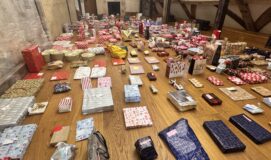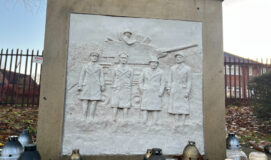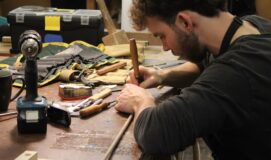Magnus Church of England Academy students in Newark attended a special event marking the 25th anniversary of The Royal Society’s Partnership Grants Scheme.
The initiative supports practical science work in schools by offering grants of up to £3,000 to support students answering a scientific question, along with partners from academia and industry.
At the event, held at the Houses of Parliament, students used their science, technology, engineering and mathematics (STEM) skills to present their own project to Royal Society members, MPs and industry experts.
The event — Bringing Research Alive: Connecting the scientists of today with the scientists of tomorrow — saw Magnus join students from five other UK schools, each with their own project as students presented findings to guests.
The Magnus team was tasked with finding methods of using new technology and renewable energy resources to reduce both energy bills and carbon footprints in schools.
In preparation for the event, students used their partnership grant to buy energy meters, anemometers, a solar power meter, a weather station, small solar panels, a wind turbine, battery, and an inverter to support their research and answer their question.
The Magnus team, made up of students from years 8 to 11, then set about dividing up the work — analysing energy bills and making their projections, as well as balancing investment costs with any potential savings a school could make.
In coming months, the students’ conclusions and analysis will undergo further testing with the aid of academic partners from the University of Birmingham, who will analyse data from the solar panels, wind turbine, and weather station, to see if the estimates students made are matched by the real data collected.
Brett Handley, a science teacher at Magnus who joined students on the visit, said: “The Royal Society Partnership Grants scheme has provided students at Magnus Academy with unique opportunities, with some taking part in The Royal Society’s Student Conference and others in their Summer Science Exhibition.
“The event in Parliament was another example of our students being involved as participants in a significant scientific occasion, alongside MPs, industry representatives and renowned scientists.
“Our students received some advice and training from The Royal Society’s school engagement team in advance of the day to help them prepare and, although some students were nervous at the prospect of taking part in this prestigious event, they soon relaxed and confidently engaged with visitors, explaining their project clearly and proudly, in what was a once-in-a-lifetime experience.”
A spokesperson for The Royal Society said: “Huge congratulations to you and your students for all the hard work to showcase your projects. From the feedback we have received from our fellows, guests and other teams, everyone has been incredibly impressed by the students’ knowledge, creativity, communication skills and courage.”



 Posted on 22nd Apr
Posted on 22nd Apr


